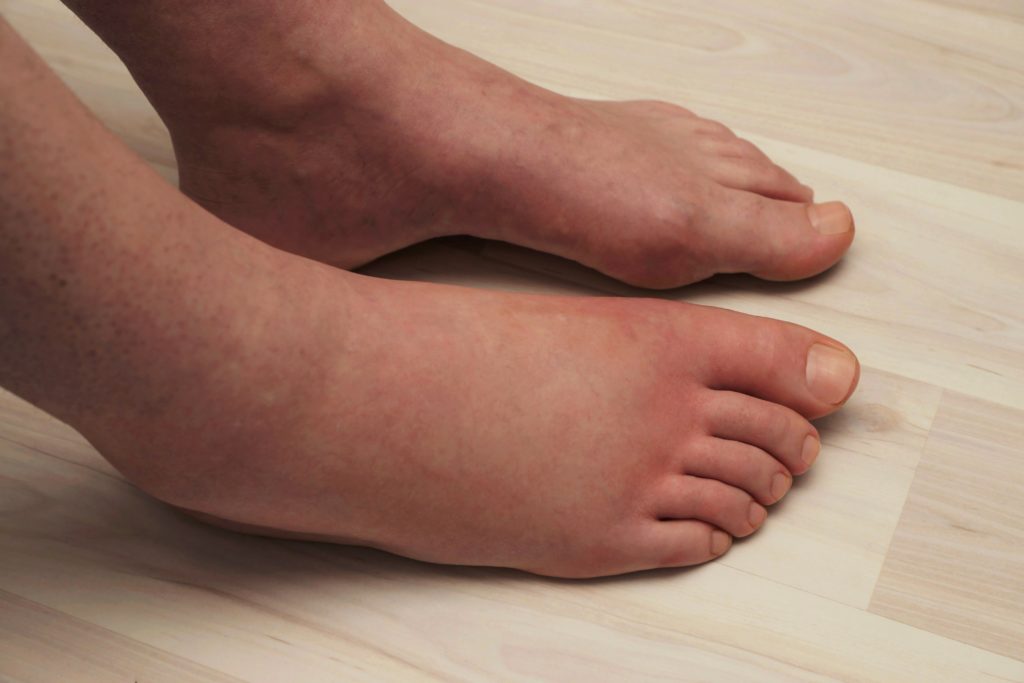Table of Contents
The obesity epidemic has been a major health concern for decades and is often coupled with multiple diseases such as diabetes, certain cancers, heart disease, stroke, hypertension, and many others.
Many of these diseases can even be seen in children as young as 7, and come as a cluster known as metabolic syndrome. Obesity and metabolic syndrome are not only growing in the United States but all over the world.

In the US about 34% of adults and 15-20% of children and adolescents are obese (LINK). Obesity is classified as having a body mass index (BMI) of >or equal to 35 kg/m2. Furthermore, obesity has been divided into (3) different categories. Class I obesity is defined as having a BMI between 30-34.9. Class II obesity is defined as having a BMI between 35-39.9. Class III obesity is defined as having a BMI > or equal to 40 (LINK).
Property of Rehaballey.com
The prevalence of obesity has increased amongst all age groups, ethnicities, and socioeconomic levels. In spite of extensive research and efforts to curb this epidemic, very little success has been made.
That is because we now know that obesity involves a complex set of factors, and can not be solved by just one simple solution.
Although food is a major factor, there are multiple other health-related factors that combined with poor habits over a period of time can lead to obesity. In this article, I wanted to highlight 6 factors that can cause obesity and increased weight gain
Excess Fat Storage

Most of you are familiar with the idea of calories in calories out, as being the primary reason for excess fat storage contributing to weight gain and obesity.
If people would just eat fewer calories and exercise more then we would not have this obesity epidemic….right? Well, it’s actually not that simple at all.
As mentioned above obesity involves a complex set of factors, even when it relates to food and energy expenditure. People rarely take into consideration our hormones that play a major role in obesity and weight gain.
Now, there are other bodily processes that can cause excess fat storage, but for this topic, I will be discussing (2) types of hormones involved, which are insulin and glucagon.
In order to fully understand the role of insulin and glucagon in managing your weight, you first need to understand how and when your body uses (3) main types of energy sources.
The three main types of energy sources are carbohydrates, fats, and protein.
Property of Rehaballey.com
Carbohydrates in the diet can be broken into a simple sugar called glucose, every cell in the body can use glucose as a source of energy. However, when there is no glucose available either in the blood (glucose), or stored in the liver (glycogen). Then the body will use fat as a source of energy.
Fats can be turned into glucose via a process known as gluconeogenesis, which can then be used for energy.
Lastly, when there is little fat for the body to use as energy, then it will turn to the final energy source which is proteins (usually from the muscles). Proteins are used as a primary energy source during starvation.
As mentioned above, the body uses carbohydrates as its first energy source. Carbohydrates in the diet are broken down into glucose in the blood to be used as a ready source of energy for your body.
Normal blood sugar typically ranges from 70 mg/dL-100 mg/dL, however, when sugar in the blood reaches above the normal blood sugar range, it triggers the hormone insulin to store the excess sugar into the liver and muscles.
Once the glucose is stored, it is now called glycogen.
The human body, however, only has a certain number of glycogen storages in the muscles and liver. This means that once the glycogen storages are all filled, excess glucose will then get converted into fat and stored as fat.
How high your blood sugar rises after you eat a meal, depends on what you eat more so than how much you eat. The higher the blood glucose levels, the higher amount of storage will occur.
Sugar and carbohydrates such as bread, pasta, cereal, grains, as well as starches such as potatoes get broken down as glucose and rapidly release into the bloodstream which in turn, raises blood sugar the highest.
Proteins raise blood sugar to a lesser degree than carbohydrates, and fats such as olive oil, cheese, butter, etc. raise blood sugar the least.
Property of Rehaballey.com
One of the keys to losing excess weight via diet is to lower your insulin levels. Since insulin is the hormone that tells the body to store glucose, less insulin in the blood means less storage can occur.
This is where the 2nd hormone, glucagon comes into play. Insulin and glucagon work opposite to each other which means that glucagon can not be present when there is a high amount of insulin and vice versa.
When sugar in the blood reaches below Normal blood sugar levels, it triggers the hormone glucagon to release stored energy from the cells and back into the bloodstream to be used for energy.
The body will use glycogen (stored energy in the muscles and liver first). Once glycogen is used, the body will turn to its 2nd source of energy which is fat, and thus fat loss (fat burn) can begin.
An individual can tell whether the body is using fat as a source of energy by whether ketones are being secreted as a byproduct in the urine.
There are two main ways to hit fat loss either through the diet by reducing blood glucose levels, or by increasing exercise.
However, changing the diet has proven to be far more superior to weight loss than just exercising alone.
Diets such as the ketogenic diet focus on a high fat, low carb dietary lifestyle which forces the body to use fat as its primary source of energy by keeping the insulin levels in the blood low.
This is achieved by reducing carbohydrates to a bare minimum while increasing dietary fat along with moderate amounts of protein.
Property of Rehaballey.com
As mentioned earlier, dietary fat only raises insulin levels very minimally. In simplest terms, this allows individuals to be able to eat while keeping their glucose in the blood low.
Without the presence of glucose, insulin is inhibited, glucagon can now be released into the bloodstream which tells the body to either release stored glycogen (if present), or start using fat as a source of energy.
Frequeny of Eating

The frequency, or how often you eat each day also plays an important role in excess weight and obesity. As mentioned above, in order for the hormone glucagon to be released, glucose in the blood has to fall below a certain level.
Glucose in the blood falls below a certain level either between meals (fasting), or after eating a meal with very little to no carbohydrates (ketogenic).
For individuals uninterested in the ketogenic or low carb lifestyle, intermittent fasting has been proven to be effective as well.
Intermittent fasting allows enough time for the body to use stored energy for basic metabolic function.
It usually takes ~12 hours for glucose levels to fall, stored glycogen to be used, and then finally fat to start being used as a source of energy.
Property of Rehaballey.com
The problem is that most people eat too frequently to allow this process to occur. Eating too frequently also spikes insulin levels on a more frequent basis, which allows for even more fat to be stored.
Eating fewer calories is not always the solution as this will only decrease your metabolism, allowing for less fat burn.
The key is to fast long enough to allow glucose levels in the blood to drop triggering stored glycogen to be used, and then eventually fat to be used as a source of energy.
Not to mention research also shows the various health benefits of intermittent fasting in addition to weight loss.
I recommend Dr. Jason Fung (LINK) to gain more information on the benefits of intermittent fasting and how it can contribute to weight loss as well as diabetes management.
Medications

Certain medications can also trigger weight gain in the body. Medications also differ on how they contribute to excess weight gain in your body. For example, medications can increase your weight by (LINK):
- Increasing your appetite
- Increasing fat storage
- Slowing metabolism
- Increasing fatigue causing decreased activity
- Increasing fluid retention
For example, antidepressants and steroids can increase appetite causing an excess consumption of calories. Diabetes drugs tend to cause fluid retention and excess water weight gain.
Beta-blockers used for high blood pressure can slow the metabolism causing the body to use less energy.
Certain antidepressants and antihistamines used for allergies can cause increased fatigue leading to a lack of activity and exercise.
Lastly, as mentioned above insulin, commonly used in conventional medical practices to treat diabetes, can cause excess weight gain by increasing fat storage (LINK).
It is important to know what side effects your medications can cause before taking them.
Inflammation and Water Retention

Most people fail to realize how much fluid retention and inflammation can contribute to excess weight gain.
We live in a culture that has adapted to a diet high in carbohydrates, processed foods, and genetically modified organisms (GMO’s).
Most of these foods that are high in chemicals and preservatives, trigger an immune response in the body similar to an illness, infection, or injury.
A good rule of thumb to remember is that any substance that does not belong inside of the body, or that the body does not recognize, can trigger an immune response or inflammation.
Property of Rehaballey.com
So what is an immune response? The immune response is designed to protect the individual from microorganisms that cause disease, and/or toxic substances that cause allergies (LINK).
Inflammation, which is a key component of the immune response, responds to injuries inside of a cell.
This response causes increased blood flow, blood vessel dilation or enlargement, and cytokines released by the immune system that signals inflammation (LINK).
The primary job of an immune response and inflammation is to eliminate toxins and repair damaged tissue (LINK).
A diet high in refined carbohydrates, sugar, and trans-fats can lead to injuries inside of cells and blood vessels. As mentioned above, the result of these injuries leads to an immune response and chronic inflammation.
For example, the immune system attempts to repair damaged blood vessels caused by increased sugar and refined carbohydrate, by releasing cytokines that cause inflammation, as well as white blood cells (leukocytes), and fatty acids (lipids) to patch up the injury (LINK).
This not only causes constriction within the blood vessel that leads to high blood pressure and reduced blood flow (thrombosis) but also can cause these lipid particles to break off and travel to other parts of the body (embolism).
This can further lead to heart attacks, strokes, deep venous thrombosis (DVT), and pulmonary embolism depending on where these clots are formed or travel.
ALLEY TIPS: Clots can either be formed by plaque or abnormal thickening of the blood. Either way, these clots can lead to tissue and/or organ damage.
In addition to inflammation, water retention can cause excess weight gain and can either be caused by hormonal imbalance and/or mineral imbalance.
According to Dr. Eric Berg (LINK), 90% of the potassium inside of the body exists inside of a cell, while most of the sodium exists on the outside of a cell.
When these (2) minerals are out of balance, water retention along with dehydration can occur.
To correct this, Dr. Berg recommends decreasing consumption of table salt, while increasing your intake of high potassium foods such as celery, beet, carrot, radish, and red potato.
Property of Rehaballey.com
There are many other ways that water retention can occur in the body, but the final way that I want to discuss in this blog is glycogen-related water retention caused by increased carbohydrate consumption.
As mentioned in the above paragraphs, the body can store excess glucose (glycogen) in the liver and muscles to be used as quick energy later on.
According to a randomized controlled trial titled Relationship between muscle water and glycogen recovery after prolonged exercise in the heat in humans (LINK), which investigated biopsy samples in aerobically trained individuals during recovery from prolonged exercises, concluded that for every 1 gram of glycogen stored in the body, is bound to at least 3 grams of water.
This means that for every 1 gram of glycogen you lose, an individual can also lose upwards to 3 grams of water weight.
Reducing carbohydrate consumption such as with a ketogenic/low-carbohydrate diet, or simply practicing intermittent fasting can reduce blood glucose levels, lower insulin, and thereby deplete glycogen storage and glycogen-related water retention.
Muscle Hypertrophy

Not all weight gain is related to a disease process. Some weight gain can be directly related to improving overall health.
For example, starting a new exercise regimen can increase bone density, muscle mass, and cardiovascular strength and endurance.
As mentioned in my blog titled The Top 5 Benefits of Exercise in Seniors (LINK), strength training exercise stimulates muscle protein production and muscle hypertrophy or growth.
Evidence has long confirmed that muscle is denser and takes up less space than fat.
For example, imagine 1 pound of spinach vs. 1 pound of steak on a scale balancing each other out.
There will be less steak on the scale as compared to spinach. That is because steak is denser; muscle fibers in protein are more tightly packed together and therefore take up less space.
In addition, when you compare muscle to fat, per cubic inch, muscle weighs more.
Since muscle is denser, it takes a smaller muscle size to weigh the same as fat. Therefore, when taking 2 individuals that weigh the exact same, the person with more muscle will look leaner, thinner, and more toned.
Property of Rehaballey.com
It is possible that you can be very lean and thin, without it particularly translating to a lower weight on the scale.
If you are gaining more muscle, it is possible that you may weigh the same or even a little more.
That does not mean that you are unhealthy, as a matter of fact, it indicates the exact opposite.
Improving muscle mass has many beneficial health implications such as adding support to your joints, increasing overall metabolism, increasing insulin sensitivity which helps to control blood glucose levels, and evidence (LINK) suggests that muscles may help support a strong immune system.
So, don’t always look at those few extra pounds on the scale as being a negative indication of your health. Instead, Rehab Alley suggests also taking measurements of your hips, thighs, buttocks, and arms to indicate how much volume you are actually losing.
Lack of Sleep

The last contributor to excess weight gain and obesity that I will talk about in this blog is lack of sleep.
It is no surprise that in our current stress-filled society of longer work hours, financial hardships, health complications, anxiety, and environmental changes (noise, traffic, lack of exercise) contribute to a chronic lack of sleep.
Many people fail to realize the role that a restful night’s sleep can play in overall health.
Research (LINK) states that younger and middle-aged adults should be getting 7-9 hours of sleep per night, with some doctors recommending closer to 9 hours of sleep.
Studies (LINK) also indicate that obesity risk generally increases for sleep durations under 6 hours.
Further research (LINK) indicates that a lack of sleep can lead to long-term health consequences such as hypertension, dyslipidemia, cardiovascular disease, type 2 diabetes mellitus, certain cancers, and obesity.
Property of Rehaballey.com
An article titled Role of Sleep and Sleep Loss in Hormonal Release and Metabolism (LINK) found sleep deprivation leads to negative health consequences by affecting hormone regulations that result in:
- decreased glucose tolerance
- decreased insulin sensitivity
- increased levels of ghrelin (hunger hormone)
- increased evening cortisol
- decreased levels of leptin
These all impact hunger, appetite, and regulation of blood sugar. This, in turn, increases the chances of weight gain and obesity.
Sleep affects every system of the body including the heart, lungs, brain, immune system, mood, and metabolism (LINK).
Not only is getting adequate sleep important to the regulation of hormones as listed above, but it also regulates how neurons (nerve cells) communicate with each other and even helps to remove toxins in your brain (LINK).
Not to mention, sleep puts the body in a temporary fasting state which allows insulin levels to decline and stored energy to be used.
Property of Rehaballey.com
According to startsleeping.org, there are ways that people can get more restful sleep which includes:
- reducing the amount of blue light from cell phones, tablets, and computers before bedtime
- increasing the amount of exercise
- reducing caffeine consumption before bedtime
- reducing the amount of food consumed before bedtime
- reducing levels of stress throughout the day
- and sleeping on a mattress that is not too old, soft, or hard.
Other challenges that can affect sleep include:
- noise
- pain/trauma
- medications
- sleep position
- sleep apnea
- illness
- anxiety
- breathing difficulties
- poor hygiene
- an environment that is too hot or cold
- altered circadian rhythm (time zone changes)
- sleep disorders
ALLEY TIPS: Talk to your doctor if you feel that you may have a sleep disorder or other serious illness such as sleep apnea.
Weight gain and obesity for most people involve numerous processes that tend to go overlooked. As a healthcare provider I wanted to highlight the main causes of weight gain and obesity, although there are many.
It’s important however, to also consider genetics, and know that not everyone is going to have the same, lean body composition.
Some studies even show that up to 30% of obese individuals are actually metabolically healthy. The key is to focus on improving your overall health by making consistent lifestyle changes.
Simply achieving a healthier lifestyle, will reverse many of the hormonal and metabolic changes that cause obesity.
An important rule of thumb to remember is that for most people, obesity is the result of poor health, not the cause.
Therefore focus on improving your health, and you will lose excess weight as a result. Once you have achieved good health over a period of time, then you will have achieved YOUR specific healthy weight.
Hopefully, this article helps to clarify different ways that obesity can occur, and ways that you can improve your overall health. Feel free to share and comment on this article. GOD BLESS YOUR ENDEAVORS!!
Resource Links
https://www.ncbi.nlm.nih.gov/pmc/articles/PMC3228640/
Sleep and meal timing influence food intake and its hormonal regulation in healthy adults with overweight/obesity
Glucokinase intrinsically regulates glucose sensing and glucagon secretion in pancreatic alpha cells
https://www.coursera.org/lecture/physiology/fasted-state-and-glucagon-90LgV
https://www.goodrx.com/blog/medications-cause-weight-gain-side-effect/
https://www.ncbi.nlm.nih.gov/pmc/articles/PMC2923430/
https://www.ncbi.nlm.nih.gov/pmc/articles/PMC4579563/
https://www.drberg.com/blog/fluid-retention
https://pubmed.ncbi.nlm.nih.gov/25911631/
https://www.sciencedaily.com/releases/2020/06/200615092747.htm
https://www.ncbi.nlm.nih.gov/pmc/articles/PMC5449130/
https://www.ncbi.nlm.nih.gov/pmc/articles/PMC3065172/
https://www.ninds.nih.gov/Disorders/Patient-Caregiver-Education/Understanding-Sleep


I’m so glad that you found this article helpful. My vision is that I can help as many people as possible achieve health to the fullest. I will be posting more topics on nutrition, as I believe this is the #1 hindrance to achieving health and wellness.
Thanks Rehab Alley for your latest blog on Obesity. I struggle with this and now I know why. You did an excellent job highlighting the 6 factors that causes obesity and increase weight gain. I often wonder after a blood test, whats really going on behind the numbers, weather they’re good or bad. You pointed out all the specifics and how to better control them. I’m glad that I now have a informative blog that I can refer back to, in order to keep up with my food choices, blood sugar, weight journey, and so much more.
Thank again and keep up the good work.
Rehab Alley for Life!